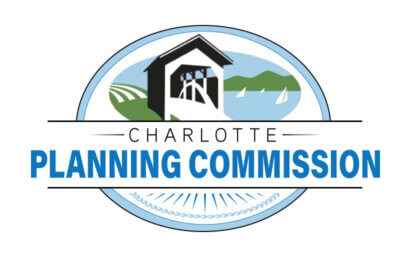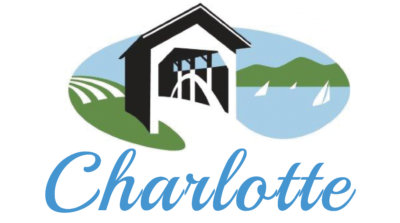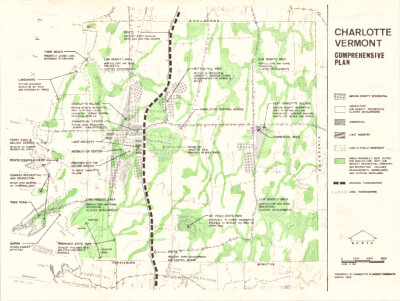Changes to land-use regulations explained
On the Nov. 8 general election ballot, Charlotte residents are being asked to vote on a set of proposed updates to the Charlotte land-use regulations. These proposals were developed by the planning commission with input from residents, staff at the Chittenden Regional Planning Commission and the Charlotte Selectboard.
It’s important to understand the relationship between the town plan, land-use regulations and how these documents determine what can and cannot be built in Charlotte. The town plan is a policy document that sets forth a vision with goals and objectives for what residents want to see in Charlotte’s future in many dimensions, including land development, energy use, facilities, services and conserving natural resources and the open landscapes which are core values for residents. The land-use regulations is the main rule book that implements the goals and policies contained in the town plan. They also guide day-to-day enforcement and the zoning administrator’s decisions in issuing administrative permits for building projects.
(Note if you’re just joining us: In December 2021, the selectboard combined the land-use permitting duties of the zoning board of adjustment and the planning commission into a single entity, the development review board. This change allowed the planning commission’s focus on planning work, including updates to the land-use regulations and town plan. Currently, all proposed changes to the land-use regulations have to be approved by a majority vote of Charlotte residents.)
Charlotte’s Town Plan was last updated in 2019. The plan and land-use regulations are living documents that need to be regularly reviewed and updated to stay current with modifications in state law, community values and changes in the community and environment: such as an aging population, reduced school enrollment, the need for more diverse housing options, a changing climate, etcetera. If we don’t update the land-use regulations, they risk becoming irrelevant — and they become more difficult to apply to projects reviewed by the development review board.
On the warrant for your upcoming general election vote are four separate articles for proposed changes to Charlotte’s land-use regulations:
- Article 1 proposes several changes to the land-use regulations that would bring them into alignment with changes in state law enacted in recent years. Towns derive their authority from state law; thus Charlotte cannot enforce zoning rules which contradict state statute. These amendments would pare down the town’s role in permitting telecom facilities, eliminate local permitting for renewable energy projects (such as solar panels) and remove non-compliant local restrictions on building multi-family housing and accessory dwellings.
- Article 2 would clarify language across several sections of the land-use regulations, to create better guidance for property owners and the development review board for what projects can, and cannot, be permitted and built, and includes many proposed technical updates and new (or revised) definitions. Proposed changes include edits to standards for projects that serve the public, the ability to sell small pre-existing lots individually, additions to buildings that are built partly within a required setback and the adaptive re-use of historic structures.
- Article 3 clarifies policies that govern how the development review board reviews proposed subdivisions which don’t comply with the dimensional standards in the land-use regulations; and modifies the size standards for accessory dwelling units. For a proposed property subdivision which doesn’t comply with the dimensional standards, the proposed language clarification would continue the past practices of the planning commission to require these subdivisions be proposed as planned residential developments. As part of the planned residential developments approval process of allowing variances from the dimensional standards, 50 percent of the property must be set aside as “open space,” meaning that it can never be built on. This requirement provides flexibility for the landowner to develop their property while at the same time maintaining the character of Charlotte. The current requirements for accessory dwelling units cap the size at 1,000 square feet or 30 percent of a home’s finished floor area, whichever is larger. The proposed change increases the 1,000 square feet to 1,500 square feet. This change would provide an opportunity for property owners with smaller primary residences (less than 5,000 square feet) to build an ADU up to 1,500 square feet. Currently homes smaller than 3,333 square feet are capped at 1,000 square feet. Property owners with homes larger than 5,000 square feet would still be able to build up to 30 percent of their total floor area as an accessory dwelling unit. We believe this change creates increased equity between property owners with very large homes and those with smaller residences.
- Article 4 would bring the land-use regulations fully into alignment with the selectboard’s December 2021 decision to create a development review board. This mostly required a “search and replace” operation in the entire land-use regulations document to change all its references to the zoning board and planning commission to the development review board, which now performs all key permitting roles which require a board decision. The resulting work was thoroughly proofread to make sure the resulting draft still makes sense. The proposed changes also lay out the assigned roles of the development review board.
Important: These articles will be printed on a separate ballot from the Vermont general election ballot which all registered voters in Charlotte will receive in the mail. So, you will need to obtain and vote this ballot separately from the one mailed to you via the Vermont Secretary of State’s office. This is similar to the separate vote that town clerk Mary Mead is managing on a proposed bond issue for the Chittenden Solid Waste district. Your supplemental land-use regulations ballot can be requested by phone or in person at town hall any time before Election Day (Nov. 8). If you’re voting in person on Election Day, the land-use regulations ballot will be available at town hall with the two other ballots.
The planning commission understands that these proposed changes are complex and wants to help residents fully understand what’s being proposed here. To that end, your town planner has prepared a “User’s Guide” that explains the purpose, rationale and effect of each amendment, if approved. It’s intended to be read side-by-side with the chart presenting these amendments. Both documents, along with a full-text “redline” version of the entire land-use regulations with these proposed changes embedded as markups, are posted to the town website.
Copies of the amendments chart and User’s Guide are available for inspection at town hall during business hours and upon request. Email town planner Larry Lewack at if you’d like to receive a copy in the mail or pick it up at the town office during business hours. If you have questions or comments for the selectboard, you may also participate in an informational session that will be offered on Wednesday, Nov. 2, at 7 p.m. in-person at town hall and online via Zoom. (The agenda will be posted to the “meeting calendar and agendas” page of the town website.)
The planning commission urges everyone to learn more about these proposals before you cast your votes. The planning commission will be posting more information in the next couple of weeks, including a follow-up article in The Charlotte News with questions and answers, and posts to the Front Porch Forum. For more information, see the project page on the town website or contact the town planner Larry Lewack at 802-425-3533 ext. 206 .
Related Stories
Popular Stories
If you enjoy The Charlotte News, please consider making a donation. Your gift will help us produce more stories like this. The majority of our budget comes from charitable contributions. Your gift helps sustain The Charlotte News, keeping it a free service for everyone in town. Thank you.
Andrew Zehner, Board Chair







